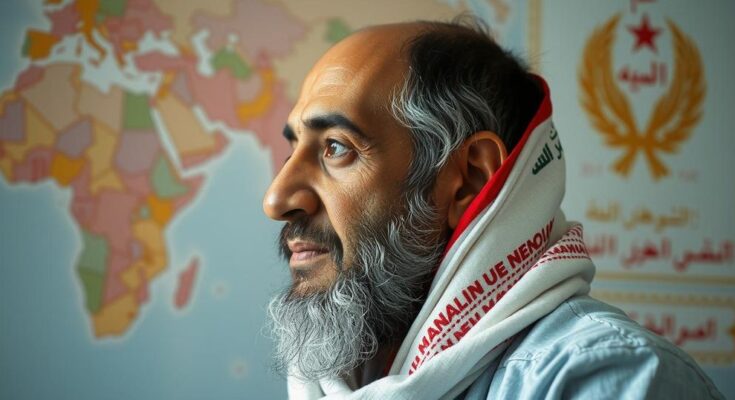Lebanon’s deportation of poet Abdulrahman Youssef al-Qardawi to the UAE has sparked accusations of unlawful actions intended to silence dissent. Human Rights Watch expressed grave concerns about his safety and potential torture in the UAE. The case reflects Lebanon’s alignment with Gulf interests amid political instability and raises critical questions about the country’s commitment to human rights.
The deportation of Abdulrahman Youssef al-Qardawi, an Egyptian-Turkish poet, by the Lebanese government to the United Arab Emirates (UAE) has ignited allegations of unlawful actions aimed at silencing dissent. Human Rights Watch (HRW) has raised alarm over the potential dangers faced by al-Qardawi upon his return to the UAE, where he may encounter torture and an unjust trial. This incident underscores a significant breach of both international and domestic law, with concerns regarding Lebanon’s commitment to its obligations towards human rights.
Arrested on December 28, 2024, at the Masnaa border crossing following a provisional request from Egypt, al-Qardawi subsequently faced extradition requests from the UAE. These requests stemmed from accusations related to spreading false information and disorderly conduct during his visit to Syria. HRW has pointed out that these charges lack recognition as legitimate offenses under international law, further contending that Lebanon’s actions undermine its own legal framework and protections against political persecution.
Despite appeals from al-Qardawi’s attorney, Mohammed Sablouh, to halt the extradition, the Lebanese authorities proceeded without awaiting a decision from the highest administrative court. The Lebanese government’s defense included assurances from the UAE regarding fair treatment for al-Qardawi, yet HRW rebutted this claim by stressing the UAE’s notorious record of human rights abuses, including arbitrary detentions and torture. Notably, al-Qardawi is not a UAE citizen and was not present in the country at the time of the alleged infractions, raising further concerns regarding the legitimacy and motivations behind his deportation.
The decision to extradite al-Qardawi reflects Lebanon’s heightened alignment with Gulf state interests amid its dire economic and political circumstances. This extradition highlights the regional challenges where dissent against authoritative regimes often results in severe repercussions. The incident prompts an urgent examination of Lebanon’s adherence to international human rights standards and its capacity to protect individuals subjected to political persecution.
The deportation of Abdulrahman Youssef al-Qardawi brings to light the critical issues surrounding political dissent in Lebanon and the Middle East. This incident occurs against a backdrop of increased pressures from Gulf states on Lebanon and a concerning trend of transnational repression. Lebanon’s political landscape is marked by significant unrest and external influences, particularly from powerful Gulf nations, which shapes its domestic policies and treatment of dissenters. The ongoing crises in Lebanon further complicate the situation as the government seeks economic support and stability, often at the expense of human rights and individual freedoms.
The deportation of Abdulrahman Youssef al-Qardawi by Lebanon to the UAE raises serious concerns regarding the adherence to human rights protocols and the potential for political persecution within the region. As international scrutiny increases, it is imperative for global institutions to hold Lebanon accountable for its actions, which threaten fundamental freedoms and compromise the rule of law. This case serves as a reminder of the ongoing challenges faced by dissenters in an increasingly oppressive political environment.
Original Source: www.jurist.org




